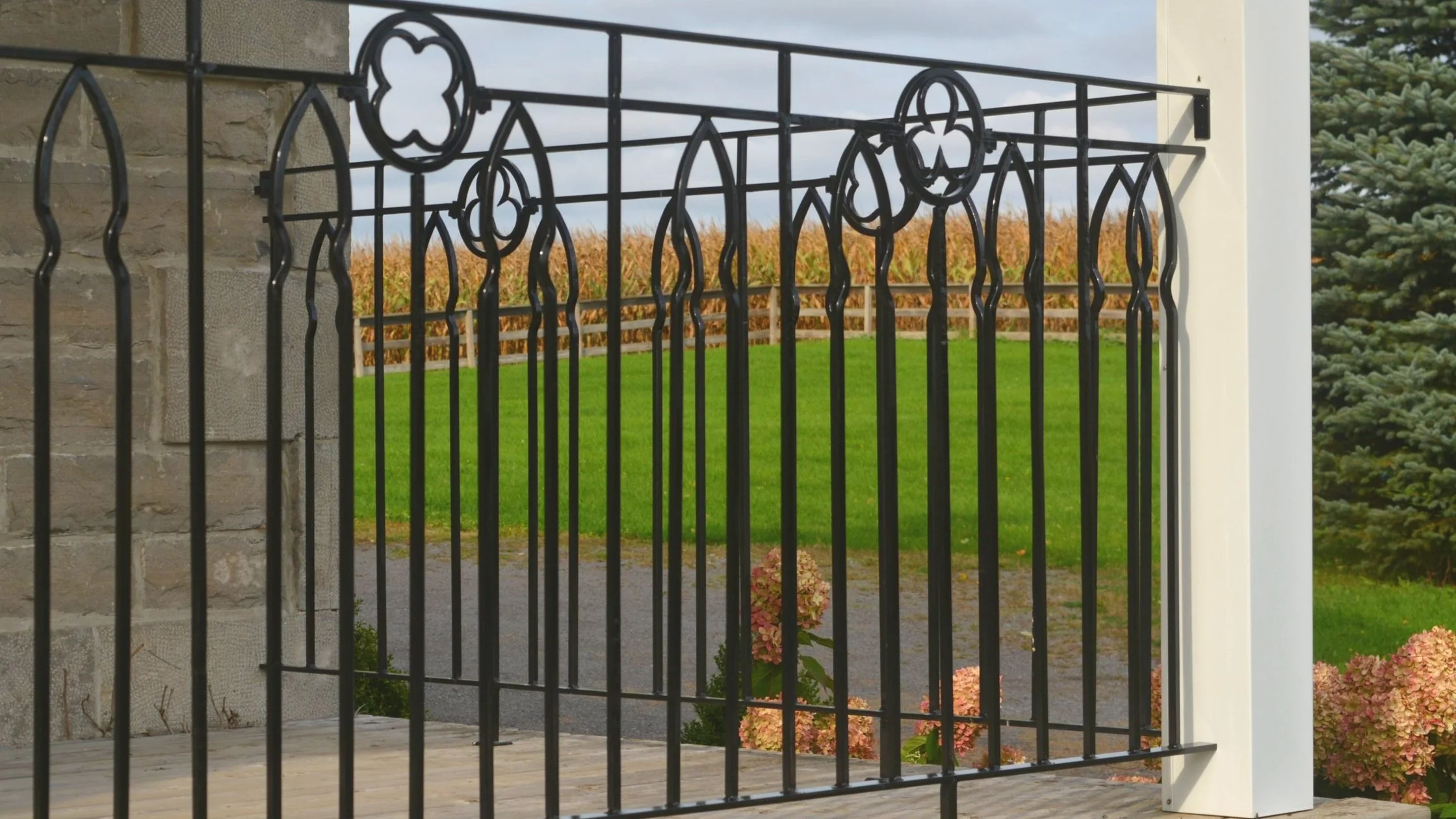Yes, and no. A custom iron railing is much more durable than wood, and requires much less upkeep. If it’s an outdoor railing, it can last many decades longer, so the long-term cost is very much lower. However, the initial cost of a custom iron railing is usually higher - more labor is required to build it, and none of our railings are built from pre-fab parts.
Traditionally-forged wrought iron railings can be a significant purchase for any home. Ornamental wrought iron gates or fences can be the crowning focal point of your property. But like any property upgrade, there is more to consider than just the installation price.
Durability, need for maintenance, lifespan, and quality of manufacture all affect what a custom railing will end up costing. Many prefabricated railings will rust out within a decade, poorly maintained wood or aluminum can corrode or disintegrate seemingly before your eyes.
Using the best materials
When deciding on a custom railing, it is important to choose the best materials for the project. Mass-produced, prefabricated railing options include, steel, cast iron or aluminum. Although there may be an initial savings in price, none of these options can compare with traditionally forged wrought iron for quality, beauty or strength. This last quality is very important, since it is the strength of a railing that we depend on for safety.
Wooden Railings
Are readily available, and often appear to be much lower cost than custom iron. But unless used for purely interior railings, it requires annual recoating with paint or stain to keep from weathering. Railings installed in an outdoor space and not carefully maintained can suffer warps, splinters and discoloration.
There also may be design considerations - it is often difficult to execute contemporary styles in wood railings, and custom design is often limited to what your railing installer can order in as a finished product - truly custom railings are almost impossible to find.
A wooden handrail after many seasons of neglect.
Aluminum railings
Aluminum railings are inexpensive and easy to install but fatigue easily, leading over time to unstable handrails and flimsy fences.
Additionally, aluminum is a reactive metal, which corrodes very easily. Exterior railings on steps or near roadways can quickly be disintegrated by winter salt, and without regular recoating aluminum can become chalky in only a few seasons.
The Superiority of Iron Railings
Wrought iron railings, however, have many advantages. Iron and steel are very strong materials, as are railings made from them. Wood fences and aluminum railings simply cannot compete with solid iron or steel for durability.
All materials require some degree of upkeep, but with proper galvanizing, powder coating or advanced enamel paints, there is no concern of wrought iron railings rusting or discoloring for years, often decades.
Finally, the strength of iron allows a blacksmith to manipulate it in ways that are not possible for other materials. Mass-produced iron railings, gates or fences are obviously a collection of assembled parts, with little relation to each other.
Our dedicated blacksmiths design each piece - whether railings, gates, fences, staircase, balconies or arbors - from the ground up, specifically to suit each client and location. We strive to balance aesthetic appeal with safety and the highest standards of quality.




